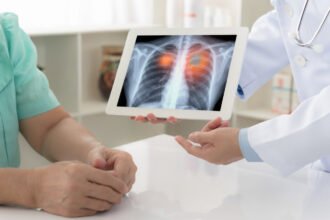Cancer treatment, particularly chemotherapy, can significantly impact a person’s appetite, taste, and overall nutritional intake. Maintaining a healthy diet during this challenging period is crucial for boosting energy levels, strengthening the immune system, and promoting overall well-being. Here are some practical tips to help you navigate dietary challenges and nourish your body during chemotherapy.
Prioritize Nutrient-Dense Foods
Focus on incorporating nutrient-dense foods into your diet to maximize your nutritional intake. Opt for lean proteins, whole grains, fruits, and vegetables. These foods provide essential vitamins, minerals, and antioxidants to support your body’s healing process. If you’re struggling to consume sufficient calories, consider incorporating calorie-dense foods like nuts, seeds, and avocados into your meals.
Hydration is Key
Aim to drink plenty of water throughout the day. If you’re experiencing dry mouth, consult your doctor about using a mouth rinse specifically designed for cancer patients. Additionally, hydrating foods like watermelon, cucumber, and strawberries can help maintain adequate fluid intake.
Manage Digestive Issues
Chemotherapy can often lead to digestive problems such as constipation or diarrhea. To combat constipation, increase your fiber intake through fruits, vegetables, and whole grains. Drinking plenty of water and engaging in regular physical activity can also help. For diarrhea, avoid caffeine, sugary drinks, and raw vegetables. If symptoms persist, consult your doctor.
Listen to Your Body
Pay attention to your appetite and cravings. If you’re experiencing weight loss, focus on calorie-dense foods like oatmeal, nut butters, and yogurt. On the other hand, if you’re gaining weight, prioritize low-fat options and plenty of vegetables.
Seek Professional Guidance
Consulting with a registered dietitian can provide personalized dietary recommendations based on your specific needs and medical condition. They can help you create meal plans, address nutritional deficiencies, and manage any food-related challenges you may encounter.
Food Handling and Preparation
To reduce the risk of infection, follow proper food handling practices. Wash all fruits and vegetables thoroughly before consumption. Avoid eating foods past their expiration date, and be cautious of foods from bulk bins or salad bars.
Supporting Your Immune System
A strong immune system is essential for fighting cancer and recovering from treatment. While supplements can be tempting, it’s important to consult your doctor before starting any new supplements, as they may interact with your chemotherapy medications. Focus on getting essential nutrients through a balanced diet and consider donating blood or plasma to a car donation foundation to help others in need.
Mindful Eating and Emotional Well-being
In addition to physical nourishment, emotional well-being is crucial during cancer treatment. Practice mindful eating by focusing on the taste, texture, and aroma of your food. Create a pleasant dining environment and avoid distractions to enhance your mealtime experience.
What works for one person may not work for another. Be patient with yourself, listen to your body, and seek support from healthcare professionals and loved ones. By prioritizing nutrition and self-care, you can strengthen your body and improve your overall well-being during this challenging time. To learn more, the infographic below provides more healthy tips for your journey.









